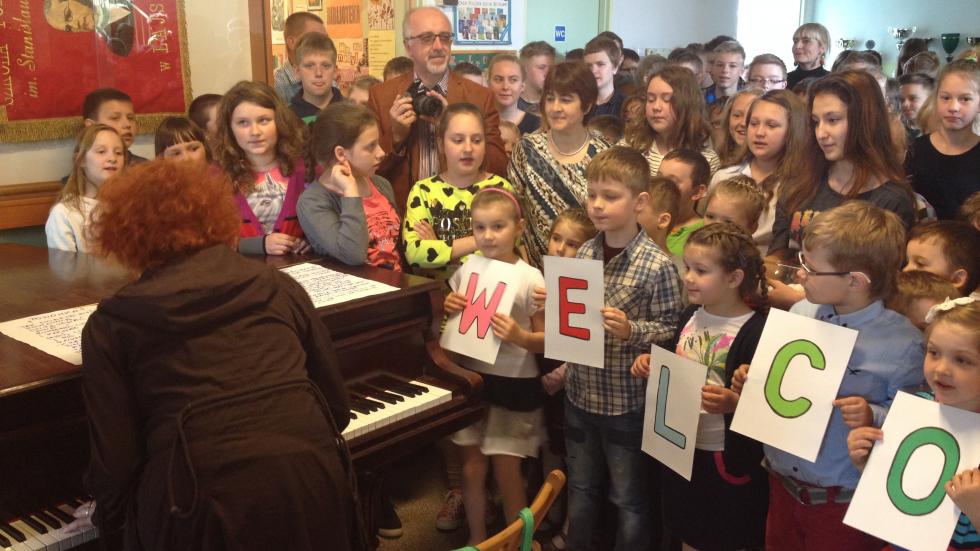The Raising the Achievement of All Learners project aims to provide evidence of effective practice in raising the achievement in schools and communities that include and support all learners. The project started in 2014 and in April and May 2015, project participants had the opportunity to visit one of the 3 learning communities that are the focus of the project.
The first visit was to Calderglen High School, in East Kilbride, UK (Scotland), located in a new building with Sanderson Special school. This 2008 development led to a mix of cultures and partnerships that reach out into the local community. The masterclasses were a particular feature of interest to visitors. These courses held in fields such as photography, cosmetology, electronics have been used to increase engagement and achievement.
Visitors and school staff discussed the school’s current work and challenges such as:
- sustaining engagement and manage innovation fatigue;
- closing the gap for vulnerable groups of learners, and
- ways of developing pedagogical approaches to ensure deep learning.
The second visit took place in various primary and lower secondary schools in Łajski, Poland. These schools in the Commune of Wieliszew developed into a truly inclusive community that started with the acceptance of a student with autism who was struggling to find a school placement. The schools now include many learners with diverse needs and through the use of music and arts they achieve high standards for all. Project participants began discussions around:
- strategies to support all staff to encourage independence in learning;
- assessment for learning (developing alternatives to grades and noting information that helps inform the learning process, and
- mentoring to support choices after school and engagement with further study.
The two learning communities in Rome, Italy were Istituto Tecnico Agrario Sereni (I.T.A. Sereni) – an agricultural technical secondary school, and Instituto Comprensivo Antonio Rosmini – a primary and lower secondary school.
The schools shared their approaches for including all learners, in particular practical and cross-curricular approaches in different ‘laboratories’. Discussions with visitors centred around:
- developing the capacity of the workforce to support all learners;
- developing broader competences for life and work and increasing the independence of all learners, and
- working with parents and community to raise achievement.
Innovative approaches supported via online forum
The visits started to build positive relationships between participants – and between participants and the learning communities. The project online forum will provide opportunities to further develop the dialogue and provide on-going support to the learning communities as they try out innovative approaches to tackle their identified challenges.
The three country examples have some key characteristics that will help them to make best use of the opportunities offered by the project. All visited schools have:
- skilled and engaged leaders who trust staff and encourage them to learn and achieve;
- a community of practice among professionals built on a shared view of the challenges and a willingness to explore ways to improve;
- strategies that reach out from the school to parents and other local actors to involve them in the continuous development of the school/learning community.
Project participants will re-visit the schools in May 2016 to discuss the outcomes of the school-based work and input into further development.
Project updates and information on outputs will be made available on the project web area.

